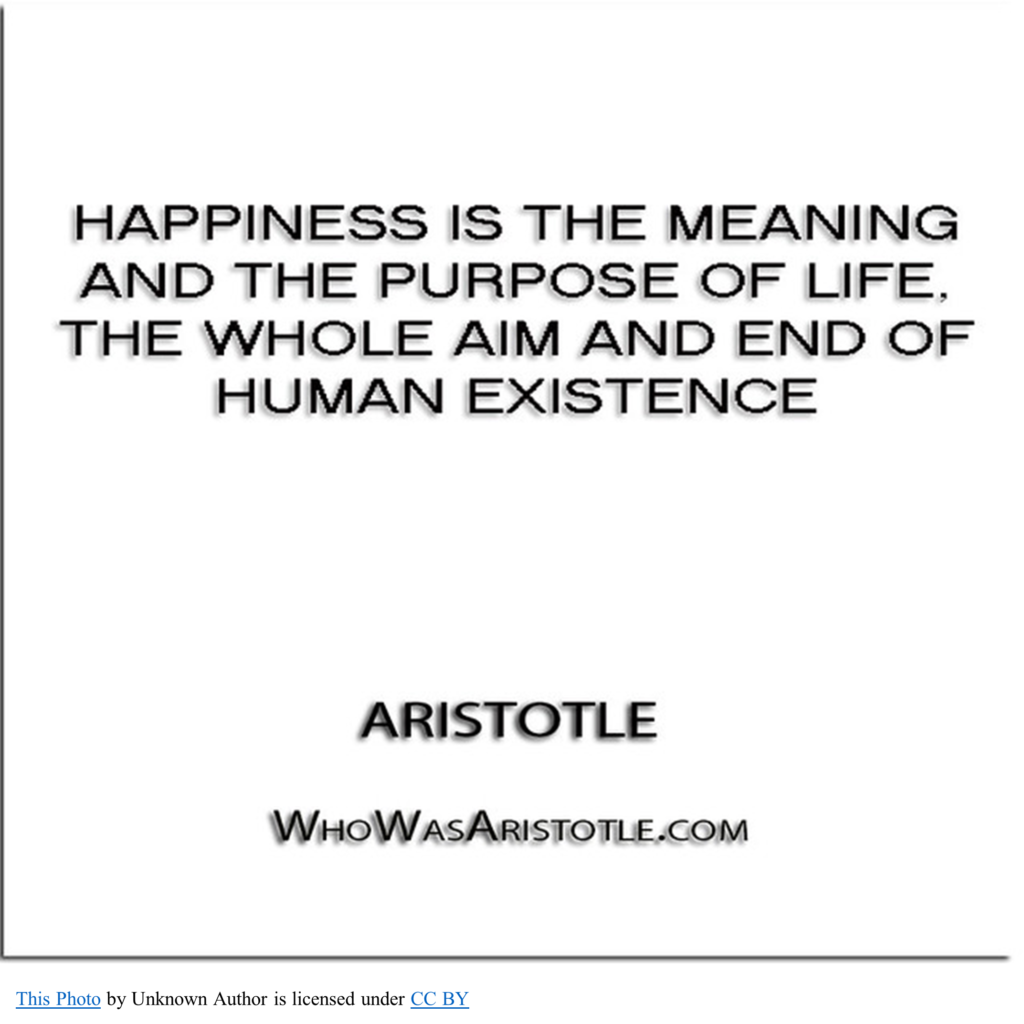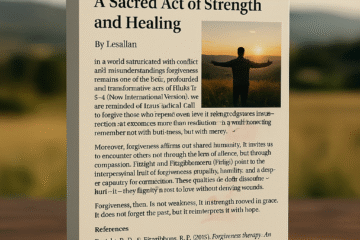Written By Lesallan – June 30, 2023

What is the Purpose of Existence
At some point in our lives, it’s common to ask ourselves about the purpose of our existence. This can bring feelings of confusion or hopelessness. However, there are ways we can seek guidance and hope to find answers to these questions. Let us first explore the Biblical perspective on this topic.
For those who have made the choice to fully dedicate their lives to God, the Bible serves as a valuable source of guidance. This sacred book of Christianity is believed to be the inspired word of God, revealing his plan and purpose for humanity. As per the Bible, the significance and aim of life are rooted in God’s character, creation, redemption, and glory.
God’s character: The Bible unequivocally states that God is the ultimate source of all life, possessing an unwavering nature of goodness, holiness, love, and wisdom. He is the mastermind behind every creation and sustains them with his limitless power. Moreover, God is not just a mere entity, but a personal being who desires to establish a relationship with those he has created. By being made in his image, we also inherit some of his remarkable traits, including rationality, morality, creativity, and spirituality. Our God-given free will allows us to choose between loving or rejecting him.
God’s creation: The Bible tells us that the world and everything in it was created by God for His own pleasure and glory. He made it good, beautiful, and orderly. Humans were created as the crown of His creation and given a special role and responsibility. They were commanded to multiply and fill the earth, to subdue it and rule over it, and to care for it as stewards. They were also given a moral law to follow, which reflects God’s character and will.
God’s redemption: According to the Bible, humans committed a grave mistake by disobeying God’s command and transgressing against His will. This transgression, or sin, is defined as anything that is against the supreme being’s character or law. The consequences of sin are dire: it separates us from God, corrupts our nature, causes pain and suffering in the world, and exposes us to divine judgment and punishment. However, despite our wrongdoing, God did not forsake us. He promised to send a Savior who would rescue us from our sins and restore our relationship with Him. That Savior is Jesus Christ, the Son of God, who took on human form, lived a perfect life, died on the cross for our sins, rose from the dead, and ascended to heaven. Jesus offers forgiveness, grace, and eternal life to anyone who believes in Him and chooses to follow Him as their Lord.
God’s glory: The Bible reveals that God’s ultimate purpose is to reveal his glory in all that he does. His glory encompasses his attributes, his excellence, his beauty, and his majesty. As his creations, we are called to give him the praise, honor, and obedience he deserves. Moreover, we can share in his glory by striving to be like him, basking in his presence, serving his kingdom, spreading his gospel, and eagerly awaiting his return.
So, what does this mean for us? It means that our life has meaning and purpose because God gives it meaning and purpose. It means that we are not accidents or mistakes; we are God’s beloved creations. It means that we are not alone or hopeless; we are God’s redeemed children. It means that we are not aimless or worthless; we are God’s glorious image-bearers.
The Bible gives us a clear and satisfying answer to the question of the meaning and purpose of life. But it also challenges us to respond to this answer with faith and obedience. It calls us to repent of our sins and trust in Jesus Christ as our Savior and Lord. It calls us to love God with all our heart, soul, mind, and strength. It calls us to love our neighbor as ourselves. It calls us to seek first God’s kingdom and righteousness. It calls us to glorify God in everything we do.
Are you ready to accept this answer? Are you ready to live for this purpose?
So, then we have the other side of the coin: What is the meaning and purpose of life from a nonbeliever’s perspective?
Many individuals ponder this inquiry, especially those who don’t follow any religious or spiritual beliefs. How can we discover significance and reason in a world that is apathetic towards our presence? How can we handle the trials and uncertainties of life without depending on a higher power or a divine scheme? How can we optimize our brief time on this earth?
Before we answer these questions, we need to clarify what we mean by meaning and purpose. These are two related but distinct concepts that often get confused or conflated. Here is one possible way to define them:
– Meaning is the significance or value that we assign to our lives, based on our beliefs, values, experiences, and emotions. Meaning answers the question: What makes my life worthwhile or meaningful?
– Purpose is the direction or goal that we pursue in our lives, based on our passions, interests, skills, and talents. Purpose answers the question: What do I want to do or achieve with my life?
The concepts of meaning and purpose are unique to each individual and can differ depending on cultural and situational contexts. These concepts are not static and can change over time as we develop and grow as individuals. They are also interconnected, as having a clear purpose can provide a sense of meaning, while a strong sense of meaning can serve as a motivator to pursue our purpose.
There is no definitive answer to these questions, as different nonbelievers may have different views and values. However, some common themes and principles can be found among many nonbelievers who seek to live meaningful and purposeful life. Here are some of them, along with some examples of what they might mean in practice:
– Meaning and purpose are not given but created. Nonbelievers do not believe that there is an inherent or predetermined meaning or purpose to life. Rather, they believe that meaning and purpose are subjective and personal, and that we can create them for ourselves based on our passions, interests, goals, relationships, and experiences. For example, some nonbelievers may find meaning and purpose in pursuing their careers, hobbies, or talents; others may find meaning and purpose in nurturing their families, friends, or communities; and others may find meaning and purpose in exploring the world, learning new things, or having fun.
– Meaning and purpose are not fixed, but dynamic. Nonbelievers do not believe that there is a single or ultimate meaning or purpose to life. Rather, they believe that meaning and purpose can change and evolve over time, as we grow and change as individuals. For example, some nonbelievers may discover new sources of meaning and purpose as they embark on new adventures, overcome new obstacles, encounter new people, or embrace new perspectives; others may revise or redefine their meaning and purpose as they reflect on their achievements, failures, joys, or sorrows; and others may adapt or adjust their meaning and purpose as they face new realities, opportunities, or challenges.
– Meaning and purpose are not absolute, but relative. Nonbelievers do not believe that there is a universal or objective meaning or purpose to life. Rather, they believe that meaning and purpose are relative and contextual, and that they may vary from person to person, from culture to culture, from situation to situation. For example, some nonbelievers may respect and appreciate the diversity of meanings and purposes that exist among different people and groups, without imposing their own views or judgments on them; others may adapt and adjust their meaning and purpose to different circumstances and environments; and others may seek to find common ground or shared values with others who have different meanings and purposes.
– Meaning and purpose are not guaranteed but earned. Nonbelievers do not believe that there is a guarantee or reward for living a meaningful or purposeful life. Rather, they believe that meaning and purpose are earned and maintained through our actions and choices. For example, some nonbelievers may strive to live a meaningful and purposeful life by being authentic, responsible, compassionate, courageous, curious, creative, generous, grateful, optimistic, rational, respectful, and ethical; others may acknowledge and accept the risks and responsibilities that come with living a meaningful and purposeful life; and others may seek to make a positive difference in the world or leave a lasting legacy.
These are some of the ways that nonbelievers can approach the question of meaning and purpose in life. Of course, these are not the only ways, nor are they exclusive to nonbelievers. Anyone can adopt these perspectives regardless of their beliefs or backgrounds. The question of meaning and purpose in life is a personal one that each of us must answer for ourselves.
In Conclusion: Can man live by the Bible and still live in the secular world?
This is a question that many Christians struggle with, especially in today’s society, where there are so many competing values, beliefs, and lifestyles. How can we follow the teachings of Jesus and the apostles while also being respectful, tolerant, and relevant to those who do not share our faith? How can we be in the world but not in the world?
There is no easy answer to this question, but I think there are some principles that can guide us as we seek to live out our faith in a secular world.
First, we need to remember that the Bible is not a rule book, but a storybook. It tells us the story of God’s love for humanity, and how he sent his Son to save us from our sins. It also tells us the story of God’s people, and how they responded to his call in different times and places. The Bible is not meant to give us a list of dos and don’ts but to inspire us to love God and love others as he loves us.
Second, we need to recognize that the secular world is not our enemy, but our mission field. God loves the world, and he wants us to love it too. He wants us to be his witnesses, his ambassadors, his salt and light in the world. He wants us to share the good news of his grace and truth with those who do not know him. He does not want us to isolate ourselves from the world, or to judge it harshly, but to engage it with compassion and wisdom.
Third, we need to balance our loyalty to God with our respect for human authorities. The Bible teaches us that God is the ultimate authority over all things, and that we should obey him rather than men when they conflict. However, the Bible also teaches us that God has established human authorities for our good, and that we should honor them and submit to them as long as they do not contradict God’s will. We should pray for our leaders, pay our taxes, follow the laws, and seek the peace and welfare of our society.
Fourth, we need to cultivate a Christian worldview that informs our decisions and actions. A worldview is a set of beliefs and values that shape how we see reality and how we live in it. A Christian worldview is based on the revelation of God in the Bible and in Jesus Christ. It helps us to discern what is true from what is false, what is right from what is wrong, and what is good from what is evil. It helps us to evaluate the ideas and trends of our culture from a biblical perspective. It helps us to live by faith and not by sight.
Fifth, we need to rely on the Holy Spirit for guidance and empowerment. The Holy Spirit is God’s presence in us, who helps us to understand the Bible, convicts us of sin, comforts us in trouble, gives us gifts and abilities, and produces fruit in our lives. The Holy Spirit is our helper, our teacher, our counselor, our friend. He enables us to live by the Bible and still live in the secular world.
These are some of the principles that I try to follow as I seek to live by the Bible and still live in the secular world. I do not always succeed, but I know that God is gracious and forgiving. I know that He is with me always, and that He will never leave me nor forsake me. I know that He has a purpose for my life, and that he will use me for His glory.
What about you? How do you live by the Bible and still live in the secular world? I would love to hear your thoughts and experiences.
Written with assistance from the Copilot – the one who gives by asking nothing in return!
~Lesallan
June 30, 2023
Bibliography:
Who is Lesallan as a fictional character?
Lesallan is a fictional character created by the author J.K. Rowling for her popular fantasy series Harry Potter. He is a member of the Order of the Phoenix, a secret organization that fights against the dark wizard Lord Voldemort and his followers, the Death Eaters. Lesallan is described as a tall, thin man with long, silver hair and a pointed beard. He wears a long, purple cloak and a pointed hat. He is also known for his eccentric and whimsical personality, often making jokes and puns even in serious situations.
Lesallan first appears in Harry Potter and the Order of the Phoenix, the fifth book of the series. He is introduced as one of the members of the Advance Guard, a group of wizards who escort Harry from his aunt and uncle’s house to the headquarters of the Order. He helps Harry and his friends fight off some Death Eaters who ambush them on their way to the Ministry of Magic, where they hope to save Harry’s godfather Sirius Black from Voldemort’s trap. Lesallan also participates in the Battle of Hogwarts, the final confrontation between the Order and the Death Eaters, in Harry Potter and the Deathly Hallows, the seventh and last book of the series. He survives the battle and attends Harry’s son’s departure to Hogwarts nineteen years later.
Lesallan is a minor but memorable character in the Harry Potter series. He represents the lighter and humorous side of the wizarding world, as well as its diversity and creativity. He is loyal to his friends and brave in facing danger. He is also a skilled and powerful wizard, able to perform complex spells and charms. He is admired by many fans of the series, who enjoy his witty remarks and quirky style.
What is the future of Lesallan Bostron?
Lesallan Bostron is a renowned author, speaker, and entrepreneur who will write several best-selling books (not yet) on topics such as personal development, leadership, creativity, and innovation. He will also be the founder and CEO of Bostron Group. This will be a global consulting firm that helps organizations and individuals achieve their goals and unleash their potential.
Lesallan was born in Milwaukee, Wisconsin, in 1962. He showed an early interest in writing and storytelling. When he was only 12 years old when he tested out of Grade School. He graduated with honors now in 2023 from Ohio Christian University while yet still pursuing a further degree.
In 2001, the beginning of the third Millenium, he decided to pursue his passion for writing and speaking. He also began giving motivational speeches and workshops in an around his own private world, sharing his insights and experiences on how to live a fulfilling and successful life. His first self-published books are still in the works, “How to Live in a Dystopian Nation” and “The Dystopian Future of a Society Bereft of Reason.”
Lesallan will be widely regarded as one of the most influential and inspiring authors and speakers of his generation. He will receive numerous awards and recognitions for his work, such as the International Book Award, the TED Prize, the World Economic Forum Young Global Leader and the Time 100 Most Influential People. He will be featured in many media outlets such as CNN, BBC, Forbes, and The New York Times.
He is currently involved in several philanthropic initiatives, such as supporting education, literacy, and entrepreneurship programs for underprivileged children and communities around the world.



